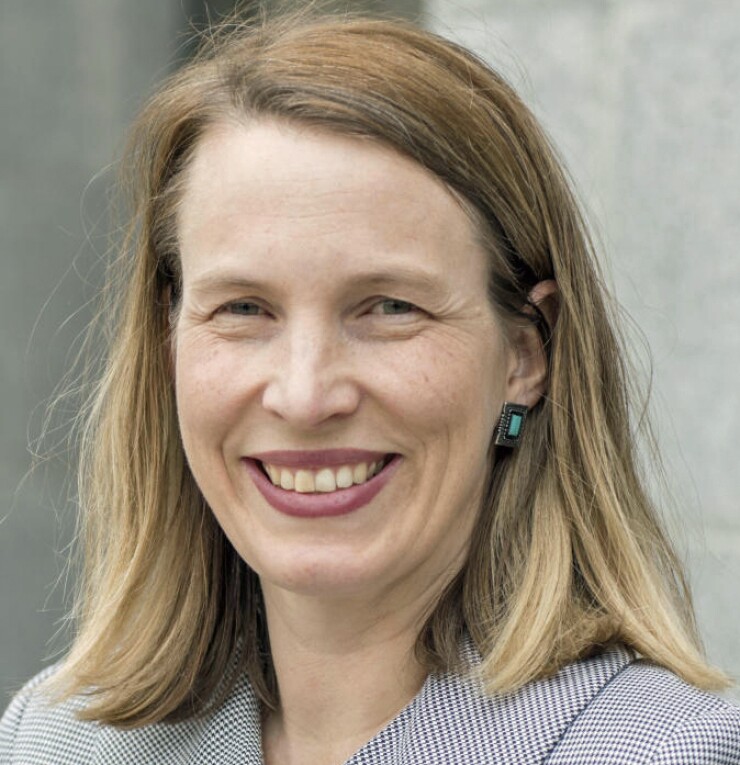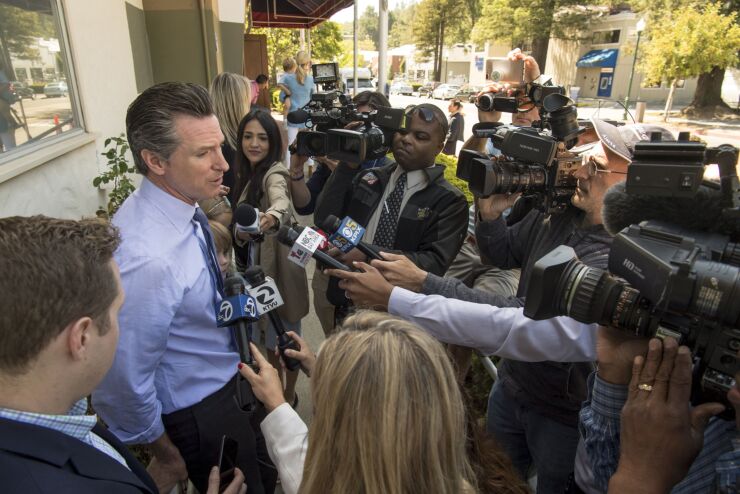California state agencies have received official word that they'll have to tighten their belts as the state grapples with the COVID-19 pandemic.
The Department of Finance sent out letters this week to the Legislature and department heads saying it would postpone its annual revised forecast ahead of the governor's May budget revision and it will be re-evaluating budget requests under a workload budget scenario.
That means “agencies and departments should have no expectation of full funding for either new or existing proposals and adjustments,” wrote Keely Bosler, the DOF’s director, in a letter to Sen. Holly Mitchell, D-Los Angeles, chair of the Senate’s Budget and Fiscal Review Committee.
“Despite the sustained efforts, the virus continues to spread and is impacting nearly all sectors of the California economy,” Bosler wrote. “Among these impacts is a potentially severe drop in economic activity, with corresponding negative effects on anticipated revenues for the upcoming 2020-21 fiscal year and beyond.”

California must pass a balanced budget under state law, and these steps are necessary given the expectation that revenues will not meet expectations forecast in the governor’s $222.2 billion budget proposed in January, said H.D. Palmer, the DOF’s spokesman.
The state's fiscal condition gives California a decent budget starting point to deal with the shutdown of much of the state's economy while residents shelter in place, analysts have said. Restaurants, bars, museums, businesses and schools are closed throughout much of the state.
The January budget was based off a November forecast that predicted the S&P 500 would be flat, which is not what happened in January, Palmer said.
The robust stock market resulted in early payments from taxpayers that came in $1 billion ahead of the governor's budget projections, which resulted in the $5.6 billion operating surplus, Palmer said. The state also has an esimtated $20.5 billion in reserves.
The directive came from California Gov. Gavin Newsom, who has been working with Republicans and Democrats in the Legislature, Palmer said.
On March 4, the governor declared a state of emergency to help the state prepare and respond to COVID-19. Since then, state departments have been engaged in numerous and various response activities and the Legislature appropriated up to $1.1 billion from the general fund to support these and local efforts, Bosler wrote.
During a Tuesday night press conference, Newsom told reporters that Californians will be required to stay inside for up to 12 weeks, countering what President Donald Trump said regarding his hope that normal economic activity could resume by Easter.
“We still have 10,000 tests out that haven’t been completed,” Newsom said. “We haven’t bent the curve, so for California that would be misleading.”

As Newsom told residents to expect the current situation to continue he said “I think April would be sooner than any of the experts I talk to about California expect.”
As of late morning Wednesday, California had 2,662 confirmed COVID-19 cases and 58 deaths, according
Los Angeles Mayor Eric Garcetti also countered the idea coming out of the Trump Administration that COVID-19 could be contained by Easter in a press conference held just before the governor’s speech.
“Don’t expect us to be open by Easter,” Garcetti said. “Don’t count on it.”
Garcetti also threatened to shut off water and power to businesses breaking the coronavirus rules. He also extended his prohibition on hiking trails to the Santa Monica stairway that connects Ocean Avenue to Route 1, a popular staircase for exercise.
In light of the evolving situation, Bosler wrote, the DOF will not propose any April 1 Finance Letter adjustments to the governor’s budget or any May adjustments to the governor’s budget in appropriations for capital outlay.
“We will reevalulate all budget changes within the context of a workload budget,” she wrote. “This includes April 1 and May 1 requests, all potential adjustments to be included in the May Revision, as well as previously approved adjustments incorporated in the governor’s budget.”
“While our first priority is the state’s response to COVID-19, we must also meet our constitutional obligation to enact a balanced budget for the coming year,” Bosler wrote.
The only exception to this new evaluation criteria will be proposals or adjustments necessary to support the emergency response to COVID-19, according to the letter.
New requests from department heads that fall outside of these parameters will not be reviewed.
“We defer to the DOF and how they want to message the proposal,” said Gabriel Petek, the state’s legislative analyst. “I don’t think we will release another comment at this point. That being said, the concept of a workload budget seems reasonable to the LAO."





